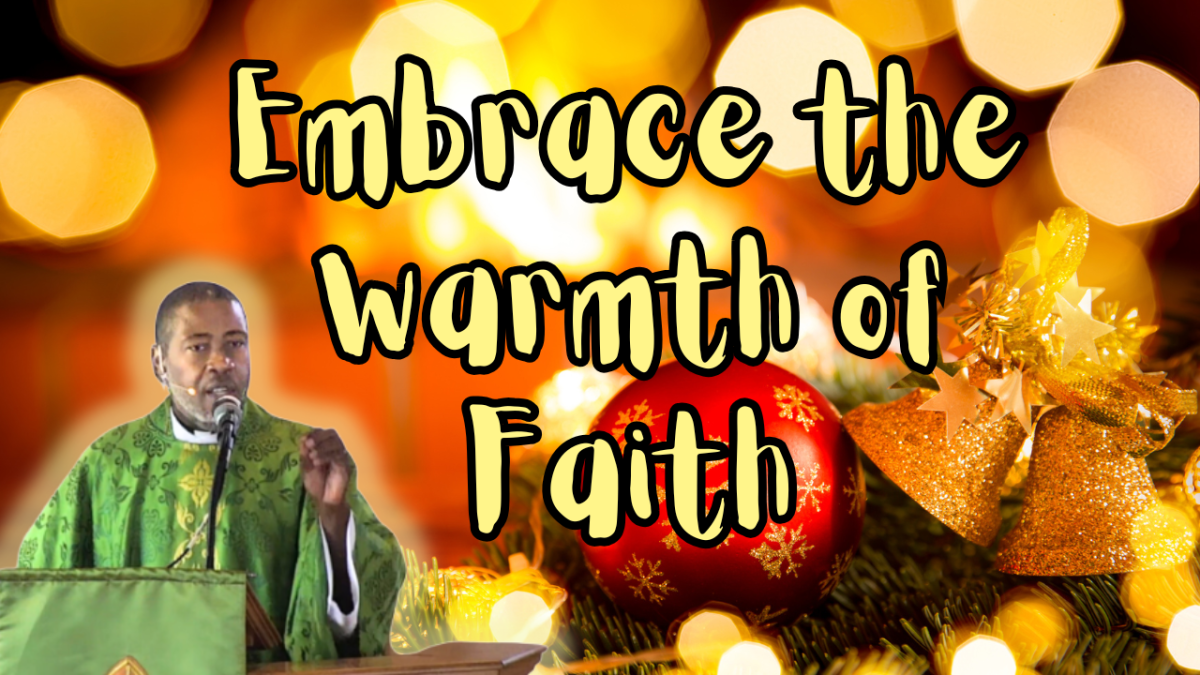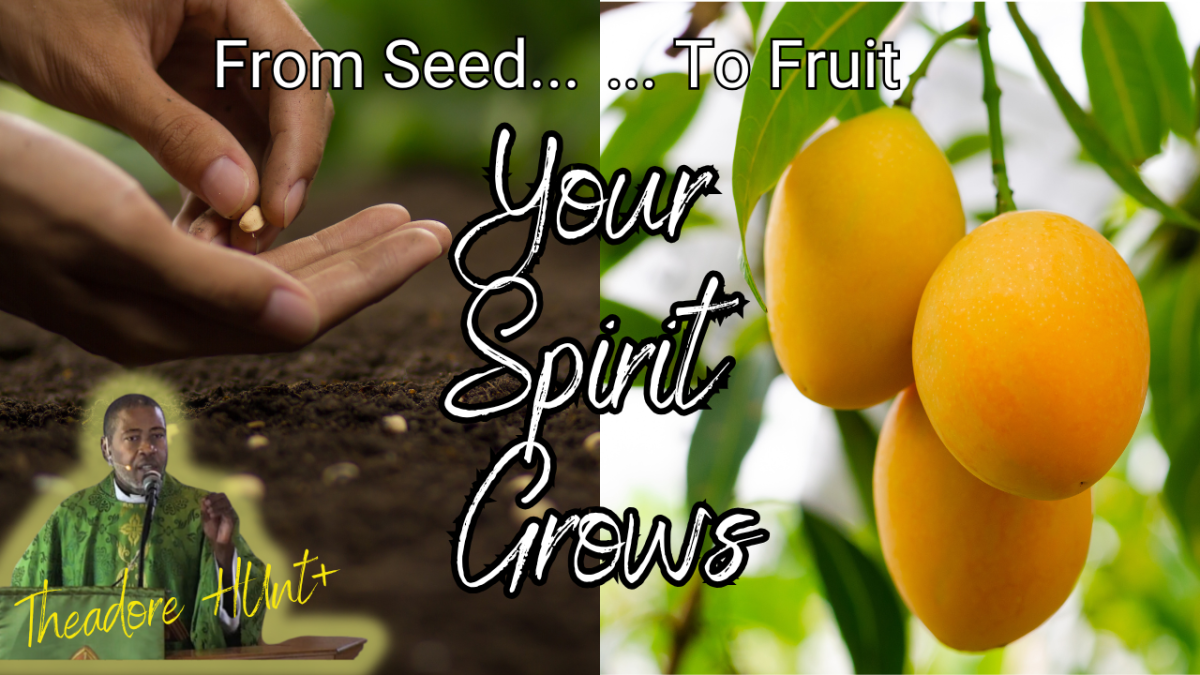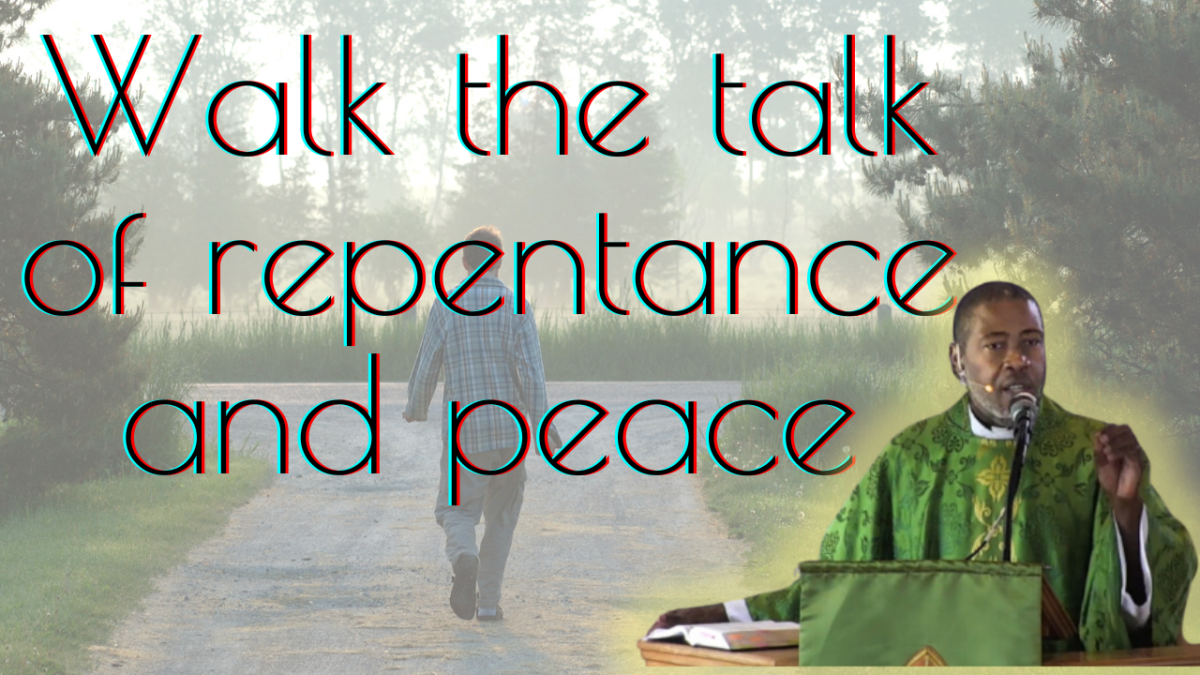Archive for December, 2024
Posted on: December 30th, 2024 by St. Stephens Downsview
Reflections on Jesus in the Temple
 Let us begin in prayer. We gather in this beautiful season of Christmas to express our gratitude for the remarkable gift of Jesus Christ, our Lord. As we come together to hear the Word, we pray to be enveloped in God’s love, enabling us to love all those whom God loves. With these words, I speak in the name of God, who is Father, Son, and Holy Spirit, Amen.
Let us begin in prayer. We gather in this beautiful season of Christmas to express our gratitude for the remarkable gift of Jesus Christ, our Lord. As we come together to hear the Word, we pray to be enveloped in God’s love, enabling us to love all those whom God loves. With these words, I speak in the name of God, who is Father, Son, and Holy Spirit, Amen.
Please be seated, and good morning to each of you. It fills my heart with joy to see so many gathered here on this first Sunday after Christmas. I am eager to share a passage with you from Luke’s Gospel, chapter 2, verse 46. It tells the story of Jesus in the temple, where He was found seated among the teachers, listening and posing questions. The beauty of this moment is as warming as a cozy fireplace on a chilly day.
A Journey to the Heart
In my own life, I’ve moved away from the perpetual warmth of the Caribbean to colder climates, and this shift has taught me new forms of warmth. Just like the allure of a fireplace on a frigid day, the scriptures draw us in, inviting us to linger and find warmth. Today’s gospel story of Mary and Joseph’s pilgrimage to Jerusalem with the young Jesus echoes this sentiment.
Mary and Joseph experienced unexpected anxiety when they realized Jesus was missing after leaving Jerusalem. As parents, one can only imagine their hearts pounding with fear when they couldn’t find Him among their friends and relatives. After three agonizing days, they finally discovered Him in the temple, engaging with the teachers, who marveled at His understanding.
The Unexpected Lessons of Love
The dialogue that follows between Mary and Jesus is telling. Mary, with concern, asked Jesus why He stayed behind, and He responded with a question that sought deeper understanding. This gentleness despite their anxiety, with no anger or reproach, is an exercise of love that we are gently coaxed to emulate, as highlighted in the letter to the Colossians and Corinthians.
Paul’s writings to the Colossians, saying to clothe oneself in love for perfect harmony, echo the sentiments seen in Mary and Joseph’s response to Jesus. This love, described beautifully in 1 Corinthians 13, is patient, kind, and forgiving—qualities we observe in Jesus’ parents. Mary, notably, treasured this incident in her heart, and there was an evident reconciliation of the entire matter.
Invitations of the Season
The Christmas season beckons us to come close to the warmth of Jesus’ life, that we too may be wrapped in His love and demonstrate it in our interactions with others. This narrative invites us to reflect: with whom can we be more compassionate, kind, or patient? Who in our lives requires our forgiveness or understanding?
Our journey toward holiness, growing in grace and favor, is encapsulated in these thoughtful reflections. We are invited to approach life’s challenges with a heart clothed in love, much like Mary, Joseph, and Jesus exemplified.
Closing Prayer
Let us pray. O God, who has known us since our own mothers’ wombs, remind us to follow You diligently and faithfully. In our life’s journey, when we wander, clothe us in your love, allowing us to grow in grace, favor, and generosity. Through Jesus Christ, our incarnate Lord, Amen.
Posted on: December 22nd, 2024 by St. Stephens Downsview
 Today, I want to share a reflection on a profound message from Luke’s gospel, chapter one, verses 42 and 45. Here, Elizabeth speaks to Mary, “Blessed are you among women, and blessed is the fruit of your womb.” These words beckon us to dive into the joy and faith that Mary experienced upon receiving the news from the angel Gabriel. At first glance, it might not seem like good news—a young girl learning she will give birth to the Son of the Most High—but it’s a message soaked in divine purpose and joy.
Today, I want to share a reflection on a profound message from Luke’s gospel, chapter one, verses 42 and 45. Here, Elizabeth speaks to Mary, “Blessed are you among women, and blessed is the fruit of your womb.” These words beckon us to dive into the joy and faith that Mary experienced upon receiving the news from the angel Gabriel. At first glance, it might not seem like good news—a young girl learning she will give birth to the Son of the Most High—but it’s a message soaked in divine purpose and joy.
Understanding Mary’s Journey
Imagine Mary’s situation: a poor young girl engaged to be married, receiving astonishing news that could upheave her entire life. She was chosen by God, not because of her status or any extraordinary trait, but because of God’s grace. This election required great humility and courage on Mary’s part to accept God’s will and believe in the fulfillment of His promises.
Life Under Roman Rule
Mary and her people lived under the heavy hand of Roman rule. It was a time of deep spiritual darkness, where the people of God were often preoccupied with maintaining the status quo, dulling their perception of God’s ongoing work. Yet, in these humble circumstances, God was at work in Mary’s life, and through her, God’s promises to Israel were to be fulfilled.
The God Who Surprises
Throughout history, God has shown a pattern of working through the humble and lowly, those willing to say, “Here am I, the servant of the Lord.” God’s surprises come often when we least expect them. They are not restricted by the mighty and powerful but are realized through those who are open to His word, much like Mary.
Our Community’s Journey
As we reflect on our journey as a congregation at St. Stephen Downsville over the past 70 years, we see both the ebbs and flows of community life. Throughout this time, we’ve welcomed new members, baptized many, and bid farewell to those who have passed. We’ve experienced profound joy and hopeful anticipation, witnessing God’s hand lifting our efforts in faithfulness.
Faith in Action
Our community has thrived on the tireless work of many—those preparing sanctuaries, leading services, volunteering, and managing finances. Our musicians have enhanced our worship, and our Saint’s Cafe has provided for those in need, reflecting the spirit of the Magnificat by lifting the lowly and feeding the hungry.
Looking Forward with Hope
While challenges persist, God has been faithful. He continues to see, know, sustain, and call us to say, “Here am I, the servant of the Lord.” Our task is to remain open to recognizing Christ’s presence among us, finding joy, and encouragement in our work. In this season, let’s rejoice in this God who is our savior, who is the same yesterday, today, and forever. Amen.
Posted on: December 16th, 2024 by St. Stephens Downsview
 In this season of Advent, we are called to reflect on the depths of our faith and the fruits we bear in our lives. As I speak to you in the name of God, Father, Son, and Holy Spirit, I invite you to consider the transformative power of repentance and how it shapes our actions and existence in this world.
In this season of Advent, we are called to reflect on the depths of our faith and the fruits we bear in our lives. As I speak to you in the name of God, Father, Son, and Holy Spirit, I invite you to consider the transformative power of repentance and how it shapes our actions and existence in this world.
The Ancient Call to Fruitfulness
In the Gospel of Luke, chapter 3, verses 8 to 9, John the Baptist delivers a poignant message to the crowd gathered for baptism. He urges them to “bear fruits worthy of repentance,” emphasizing that ancestry alone does not secure salvation. These words remind us of the divine command found in Genesis, where God, in His creation of earth’s vegetation, enshrined a principle of fruitfulness within nature itself. This principle extends to us as God’s human creatures, calling us to produce fruit through our actions and lives.
The Seed, the Fruit, and Our Hearts
Reflecting on this principle, consider your heart and mind as the seed, and your actions and words as the fruit you produce. The things we ponder, consume, and engage with sow seeds in our hearts that manifest in our lives. It is crucial, therefore, that we are mindful of what we allow to take root within us. Particularly with our youth, we must be cautious of the influences they encounter, knowing these will shape their future actions.
John the Baptist’s Message
John’s message was clear and compelling: real change, not superficial allegiance, was required. Despite his rugged outward appearance, it was his proclamation of God’s kingdom being at hand that captured attention. John’s call was one of repentance, urging people to turn their hearts back to God, preparing the way for the coming Messiah through authentic change.
Repentance in a Modern Context
Even today, John’s message challenges us. Retired Bishop N. T. Wright reminds us that while our journey with Christ involves more than just repentance, it certainly starts there. Our spiritual transformation through God’s grace requires a genuine change of heart reflected in our lives. Therefore, we must ask ourselves: what does bearing fruit worthy of repentance look like for each of us personally?
Practical Steps to Demonstrate Repentance
John provided general guidance to the crowds: share with those in need, be fair, and be content. Yet, the application of repentance can vary based on personal circumstances. Perhaps it means donating excess to those lacking or reevaluating our priorities away from material pursuits. During moments like Black Friday, where consumerism often overshadows compassion, we should remember to consider those around us and their needs.
A Prayer for Transformation
As we navigate this Advent season and beyond, may God transform our hearts, enabling us to live authentically in accordance with our baptismal promises. Let us pray for the courage and wisdom to bear fruits that are visible signs of genuine repentance, impacting our lives and the world around us.
Amen.
Posted on: December 9th, 2024 by St. Stephens Downsview
 Luke tells us that John went into all the region around the Jordan, proclaiming a baptism of repentance for the forgiveness of sin. As it is written in the book of the words of the prophet Isaiah, the voice of one crying out in the wilderness, prepare the way of the Lord, make his paths straight.
Luke tells us that John went into all the region around the Jordan, proclaiming a baptism of repentance for the forgiveness of sin. As it is written in the book of the words of the prophet Isaiah, the voice of one crying out in the wilderness, prepare the way of the Lord, make his paths straight.
Over the last year and about two months, the world’s attention has been captivated by what are perhaps the two major conflicts of the world. The war between Russia and Ukraine, and the war between the Israeli government and Hamas. The reality is that neither of these wars started in this generation. Their roots, originating from that original offense, go back for many generations. Some nations and people have been fighting for so long that they probably can’t even remember what they were really fighting for anymore. We just know that we are at war.
It takes real effort to remember an offense over many generations because it requires intentionality in holding a grudge. It requires intentionality to hand on unforgiveness, to teach those coming after us what those who have gone before us have done, in a way that engenders a desire for vengeance, even against their descendants. You didn’t do me anything, but your father’s father’s father’s father’s father did, and so you’re going to bear the brunt.
Transforming Our Path
Where does it all end? How do we stop this moving train? Or at least, how do we change its course or direction? While it may be easy for us to ask such questions about external wars, it is much more challenging for us as the people of God to address the questions of such wars which rage within us. That is the internal struggle over whether we strive to walk more and more in the light of Christ and in communion and fellowship with his body, the church, or whether we continue to try to do things our own way, on our own terms in this life, and to try to go it alone. Because that’s the war that rages within each and every one of us.
The Challenge of Identity
It is both ironic and devastatingly sad that many nations and peoples continue to fight, even to this day, against other nations. They’ve invested so much in the cause—so much into this conflict—that stopping feels impossible. The conflict has become such an integral part of their identity that they would find it very difficult to even recognize themselves if they just stopped fighting. This is who we are. Similarly, I would venture to say that we find it extremely difficult to change the course of our lives because we feel that we have gone so far down a particular road.
Our lives and our identity have been shaped by the unfortunate choices and decisions that we have made along the way, forming a kind of home for ourselves. Leaving that home or recognizing who we really are if we were to live more like the way Christ calls us is a difficult task. But yet, friends, that is precisely what repentance calls us to do.
The Call to Repent
In repentance, there is a change of heart, a change of mind with regard to the choices that we have made or the things that we have done, and therefore a change in the direction in which our life is headed. That’s what repentance means. There is authentic godly sorrow over our past deeds because in that moment of repentance, we recognize and acknowledge that God’s way was always right and that it is we who have strayed. From that moment of repentance, we endeavor in the grace of God and with the power of the Holy Spirit to continue along God’s way and not our own.
The Pathway to Peace
Repentance is stopping right in our tracks—and turning back towards the light, turning back towards God. Walking towards the light that is Christ’s life, it is in this act of repentance, stopping, acknowledging, turning, and walking towards God that we begin to experience the peace that Christ brings. God’s peace goes to the root of our conflict. It goes to the heart of our sin. It begins with truth-telling, and this truth-telling must often work through conflict to establish a true and authentic peace.
Conclusion
Perhaps the place to begin in identifying those things of which we need to repent is by giving careful attention to those areas of our lives where we do not presently experience God’s peace. As you consider who you are and where you are in the light, where is that groaning in your life? Where is that heaviness? Where’s that sense of unease? Where’s that sense maybe of complacency in the midst of the darkness?
God never called us to be peacekeepers. God calls us to be peacemakers. And making peace is by no means easy work, but it is important work. It is gospel work. It is the path of peace. It is our salvation.
 Let us begin in prayer. We gather in this beautiful season of Christmas to express our gratitude for the remarkable gift of Jesus Christ, our Lord. As we come together to hear the Word, we pray to be enveloped in God’s love, enabling us to love all those whom God loves. With these words, I speak in the name of God, who is Father, Son, and Holy Spirit, Amen.
Let us begin in prayer. We gather in this beautiful season of Christmas to express our gratitude for the remarkable gift of Jesus Christ, our Lord. As we come together to hear the Word, we pray to be enveloped in God’s love, enabling us to love all those whom God loves. With these words, I speak in the name of God, who is Father, Son, and Holy Spirit, Amen.


